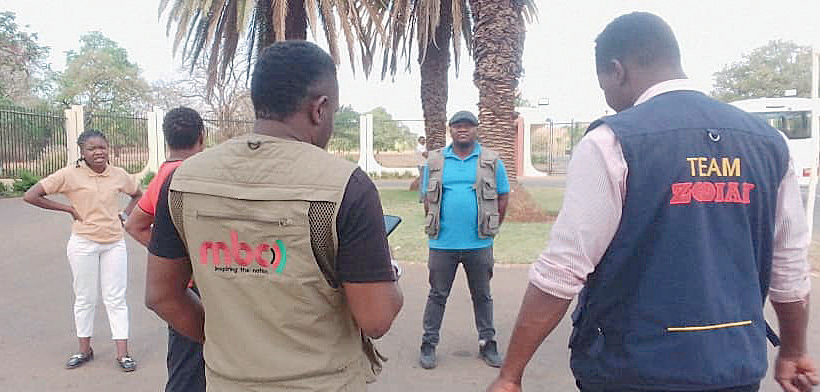Research as a catalyst: Malawi’s pursuit of health and prosperity
Malawi is embarking on a bold trajectory towards national transformation, placing research and innovation at the heart of its development strategy. In a country grappling with persistent health challenges and economic constraints, the pursuit of homegrown solutions is no longer aspirational—it is imperative.
Across universities, laboratories, and government institutions, a quiet revolution is underway. Scientists, policymakers, and academics are forging partnerships to address public health concerns while stimulating economic growth. The message is clear: knowledge must drive progress.

At the forefront of this movement is the Kamuzu University of Health Sciences (Kuhes), which last week convened its Fourth Annual Research Dissemination Conference in Blantyre. The event, themed “Multidisciplinary Health Research and Innovation: Key to Economic Development,” drew hundreds of delegates, including researchers, health professionals, and senior government officials.
Kuhes Vice Chancellor Professor Mac Mallewa described 2025 as a pivotal year in the university’s mission to champion excellence in health research. “A healthy population is the cornerstone of economic growth, social stability, and national prosperity,” he said.
Mallewa underscored the economic implications of poor health, citing World Bank estimates that Malawi forfeits nearly six percent of its GDP annually due to reduced productivity linked to malnutrition and preventable disease. “Fewer sick days and improved cognitive function translate into greater innovation and output,” he added.
Since its establishment in 2021, following the merger of the College of Medicine and Kamuzu College of Nursing, Kuhes has made research central to its institutional identity. Its publication output has surged from 200 studies in 2021 to over 500 in 2024, with projections suggesting the figure could double by year-end.
Aligning with national vision
Kuhes’ research agenda is closely aligned with Malawi 2063, the country’s long-term development blueprint, which envisions an inclusively wealthy, industrialised, and self-reliant nation. The university’s work supports key Sustainable Development Goals, notably SDG 3 (Good Health and Well-being), SDG 4 (Quality Education), and SDG 9 (Industry, Innovation and Infrastructure).
Dr Eliya Zulu, African Institute for Development Policy (Afidep) executive director, noted that Malawi is making strides in translating research into policy. “We are moving beyond dissemination towards integration,” he said. “This requires researchers and policymakers to collaborate as equal partners throughout the research cycle.”
With international development funding in decline, Zulu argued that local institutions must assume greater responsibility for generating evidence-based solutions.
“The government should enhance investment in research to unlock the full potential of domestic think tanks and universities,” he said.
Strengthening institutional Capacity
Secretary for Higher Education, Levis Keliyasi Eneya, echoed the call for deeper collaboration. “Sustainable economic growth is only possible with a healthy and productive population,” he said. “Universities must pool resources, share infrastructure, and promote joint innovation initiatives.”
Chairperson of Kuhes Council Professor Sosten Chiotha, emphasised the importance of research dissemination events in connecting scientists, policymakers, and innovators. “This is not merely an academic gathering—it is a celebration of our collective commitment to advancing health sciences for the public good,” he said.
Chiotha traced Malawi’s research tradition to 1966, a year after the founding of the University of Malawi, when a national research committee was established to promote local innovation. “We are building on a legacy. Research is not a luxury—it is a national necessity,” he said.
According to the 2024 UNDP Human Development Report, Malawi’s Human Development Index rose from 0.465 in 2010 to 0.512 in 2023, driven largely by improvements in life expectancy and access to health services. Yet preventable diseases still account for over 40 percent of hospital admissions, underscoring the need for sustained investment.
Founder of First Capital Bank (FCB) Hitesh Anadkat, and guest of honour at the conference, praised Kuhes for its regional leadership. “Its graduates and researchers are transforming communities and contributing to global health solutions,” he said. “Research conferences are vital platforms for translating ideas into action.”
Investing in the future
Malawi’s commitment—through Kuhes, Afidep, and the Ministry of Higher Education—signals a shift in national priorities. From classrooms to clinics, and from laboratories to policy chambers, the country is laying the groundwork for a healthier, wealthier future.
As Mallewa observed: “Multidisciplinary research and innovation are the engines of our social and economic transformation. By investing in knowledge today, Malawi is building the foundation for a prosperous tomorrow.”





